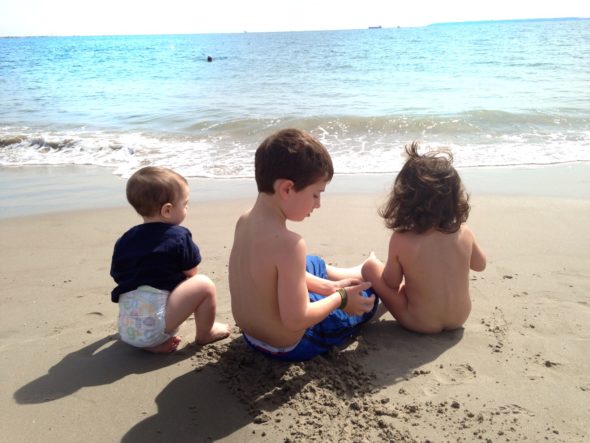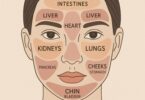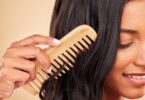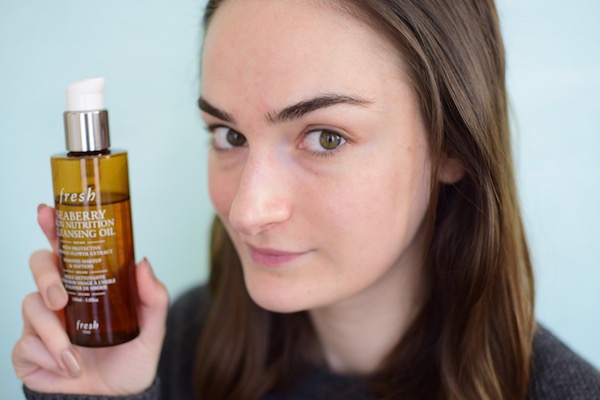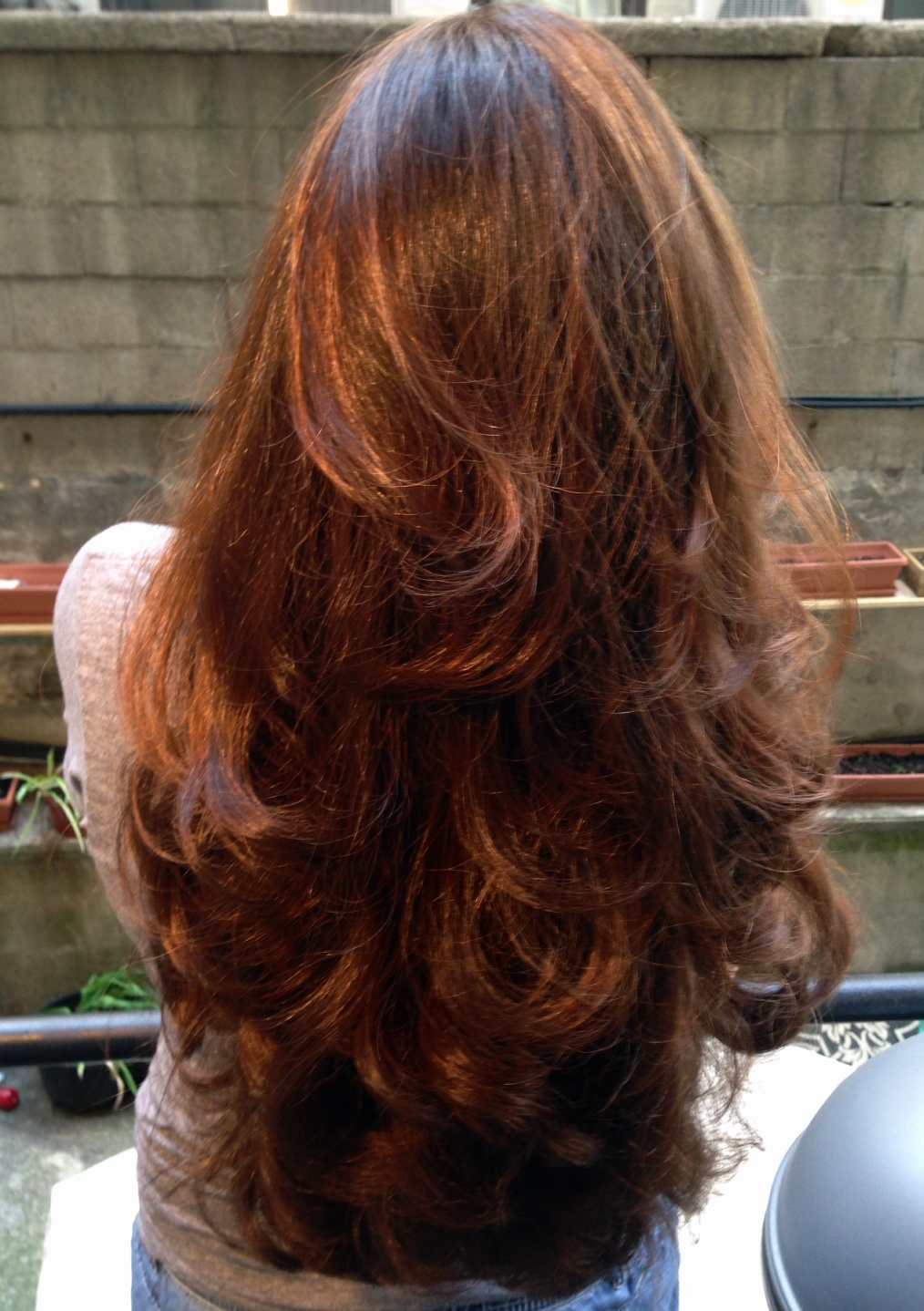Even if you don’t have kids, these surprising infant eczema facts may mean a lot to you.
Did you know an estimated 30 million americans have eczema, the often dry, flaky, and itchy skin condition that is a literal pain to deal with? What’s worse is that it’s increasingly common in infants and young children, too, so we caught up with Dr. Jeanine B. Downie, M.D. and director of Image Dermatology in Montclair, NJ.
“Infant eczema is really hard for babies to deal with — there can be a lot of scratching, redness, and irritation that can even lead to bleeding and more permanent skin damage,” explained Dr. Downie. “There are a lot of easy tips for making the symptoms of infant eczema easier to deal with, though, and even over the counter products to soothe before you reach for riskier prescriptions like steroids.”
Dr. Downie shared some pretty surprising facts, tips, and solutions we think you’ll love:
1. Leaving a humidifier in a baby’s room is one of the easiest ways to soothe dry, itchy symptoms. “As my skin transitions from summer into fall, I’m excited to pull out my humidifier,” she shared. “The humidifier adds moisture to skin, hair, and nails — in the summer the natural humidity is high, but the winter sees a drop in humidity, and our skin gets dried out which makes us dryer, itchy, and leads to eczema flares.”
2. Allergies, asthma, and eczema are all on the same gene. Dr. Downie told us that it turns out if you already have one of these conditions, there’s a good chance the others may pop up over the course of your lifetime. If your little one is dealing with infant eczema it may also be a good idea to keep an eye on his/her allergies and respiratory systems as well.
3. You can develop eczema at any age or stage of life. It can pop up at literally any moment, and lack of sleep, stress, and fluctuating hormone levels are all major triggers.
4. Flare ups can be diet-related. “If your child is dealing with infant eczema, you should stay away from all the allergenic foods that are on the list, and definitely don’t add foods before six months to a baby’s diet.” That includes typical baby starter foods like rice, wheat, and other grains, because before six months they can trigger skin reactions. “After six months definitely stay away from allergenic foods like chocolate, nuts, and strawberries if your baby suffers from eczema as they can really trigger a flare.”
5. There are OTC treatments that can really help. “In terms of new breakthroughs, the new Aveeno Baby Eczema Therapy Nighttime Balm has three times the amount of glycerine, but the product is both steroid and paraben-free, as well as being non-greasy but super hydrating. I love that because as the weather changes I get so dry, and this new formulation is great for both infants and adults and is pretty fantastic.” If you’re wondering why glycerine is so important for an eczema-helping product, it’s because it helps lock moisture into skin.
6. Bathe or shower first, then apply your baby’s eczema balm. “One of the easiest tips for soothing infant eczema is giving the child a lukewarm, not hot, bath. Add your soothing balm to the baby’s damp skin to really seal the moisture in.” This trick provides the longest-lasting moisture relief which apparently helps alleviate a lot of the itch-related issues.
7. Always wash clothes in very mild detergent. Even after you think your little one is old enough to move beyond the baby detergents, it’s still best to stick to a ‘free & clear’ formula to avoid contact with irritants like fragrance, dyes, and potentially hard-on-skin chemicals.
8. Moms need to go fragrance-free, too. “It’s important for parents of children suffering from infant eczema or the childhood version to also not wear fragrances since there’s so much direct skin contact between parents and children.”
9. The main goal of eczema treatment is to stop the itching. Dr. Downie says that’s, “Because because you’re inflaming and irritating the skin when you scratch, making the eczema worse and allowing potential bacteria viruses into the skin directly.” Yikes, who knew? “For this reason I recommend keeping your child’s fingernails constantly trimmed and filed. If you don’t have weapons, you won’t go to war with your skin.”
10. Scalp eczema is a problem, too. “Make sure the baby isn’t scratching, scabbing, or forming scars on their scalp because this could lead to permanent damage and hair loss.”
11. Loose-fitting, natural fiber clothes are the best plan of eczema fashion action. “Materials like cotton and cashmere are breathable and soft enough to minimize skin irritation and itching. Materials like polyester and wool are never a good idea, especially those non-breathable pajamas in every kids store.”
12. Start with OTC eczema products before trying Rx medicines. “I prefer to start with OTC products before going to Rx topicals or oral anti itch medications, or the last lines of defense — like topical or oral steroids,” Dr. Downie says. “Topical steroids are really overused and abused by dermatologists, but there are tons of potential side effects for both children and adults. Steroids in general have lots of side effects that wouldn’t be my ideal for a child initially, which is why the OTC methods are really important to try for.”
This post was sponsored by Aveeno, but only real thoughts and medical opinions were expressed.

